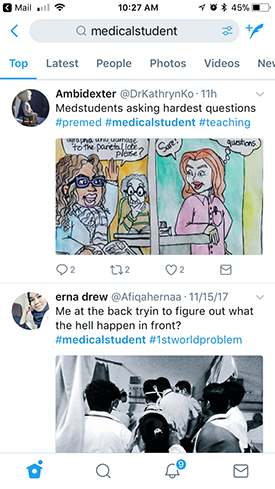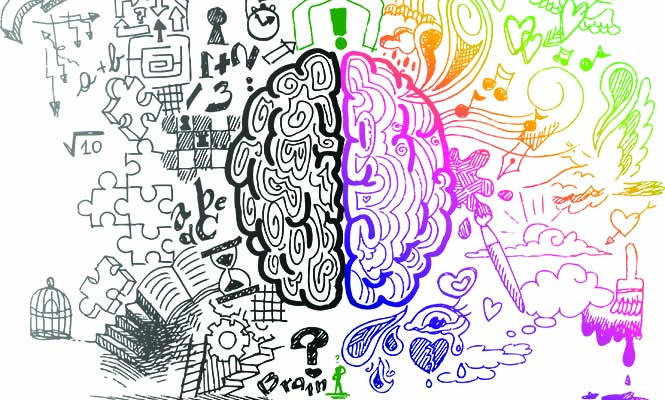 The average starting medical student was born in 1993, therefore few of us are pre-internet, and a growing number of us do not remember the internet before MySpace or Facebook. We came of age chatting on instant messengers, constructing online profiles to appeal to our friends and posting content with little idea of the web’s permanence. As we progressed in our careers, we began to realize that our online personalities needed to be carefully managed to project a professional image. This issue has Joey Linzey (@joseph_linzey), a medical student at Michigan University, outlining basic rules for medical students and aspiring neurosurgeons to maintain a social media presence.
The average starting medical student was born in 1993, therefore few of us are pre-internet, and a growing number of us do not remember the internet before MySpace or Facebook. We came of age chatting on instant messengers, constructing online profiles to appeal to our friends and posting content with little idea of the web’s permanence. As we progressed in our careers, we began to realize that our online personalities needed to be carefully managed to project a professional image. This issue has Joey Linzey (@joseph_linzey), a medical student at Michigan University, outlining basic rules for medical students and aspiring neurosurgeons to maintain a social media presence.
Social media facilitates relationships across the globe that would have previously been prohibitively difficult. Mobile phones request our attention on a regular basis with Facebook and Instagram notifications, Tweets and LinkedIn requests — a meager sample of the substantial number of tools intended to keep us connected. Feeds tailored to our interests and “likes” allow us to stay up-to-date with the latest news and research. However, it is important to remain aware of the negative aspects that come with our always-online lives. Research by OnDevice suggests that as many as 10 percent of 16-34 year old job seekers have been rejected from a job due to social media, while CareerBuilder revealed that 70 percent of employers check social media for red flags prior to hiring an employee. Information overload is a hot topic now, but was written about by Diderot in the 1700s1. Georg Simmel, a German sociologist, examined the negative effects in the late 1800s. He feared that the increasing stimuli of cities would interfere with urbanites’ ability to react to novel situations. Social media has also been criticized for:
- Disparity in access to platforms;
- Lack of privacy;
- Low levels of trustworthiness, which increases distrust amongst groups; and
- Increased levels of passive (rather than active) participation.
Numerous authors have described the negative effects of social media on interpersonal relationships: many fear that young people’s expectation of the internet fulfilling social needs falls short of the reality of what the internet can provide. At the risk of pretentiousness, Henry David Thoreau wrote in Walden:
“Our inventions are wont to be pretty toys, which distract our attention from serious things. They are but improved means to an unimproved end …” 2
And that is, perhaps, exactly the take home message for aspiring doctors and neurosurgeons engaging in social media — to remember the end. Social media is an unrivaled tool for connection and dissemination of information. It is important to be self-aware and monitor the information we display and be critical of the content we consume. With this in mind, every student can have a healthy relationship with social media.
Footnotes
1. “As long as the centuries continue to unfold, the number of books will grow continually, and one can predict that a time will come when it will be almost as difficult to learn anything from books as from the direct study of the whole universe. It will be almost as convenient to search for some bit of truth concealed in nature as it will be to find it hidden away in an immense multitude of bound volumes,” Denis Diderot, Encyclopédie, 1755
2. This entire paragraph is really too good and prescient not to be reprinted: “We are in great haste to construct a magnetic telegraph from Maine to Texas; but, Maine and Texas, it may be, have nothing important to communicate. Either is in such a predicament as the man who was earnest to be introduced to a distinguished deaf woman, but when he was presented, and one end of her ear trumpet was put into his hand, had nothing to say. As if the main object were to talk fast and not to talk sensibly. We are eager to tunnel under the Atlantic and bring the old world some weeks nearer to the new; but perchance the first news that will leak through into the broad, flapping American ear will be that the Princess Adelaide has the whooping cough. After all, the man whose horse trots a mile in a minute does not carry the most important messages…”
[aans_authors]







